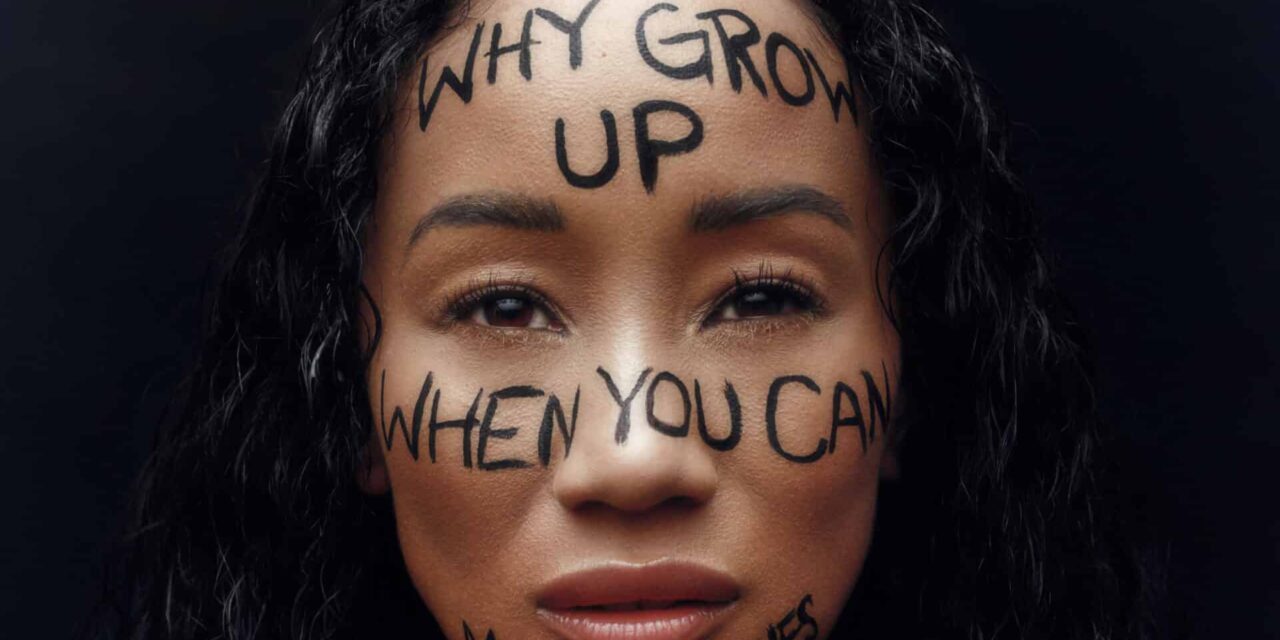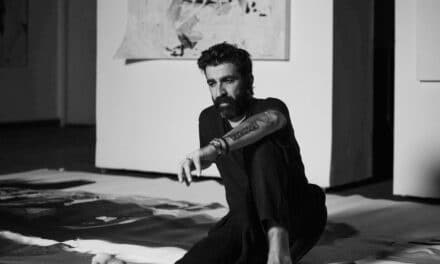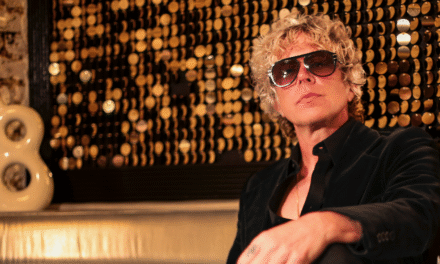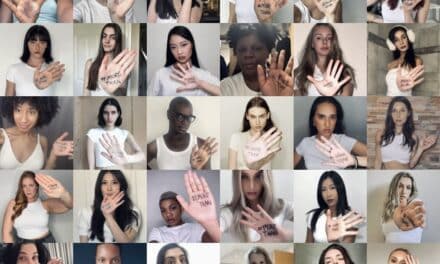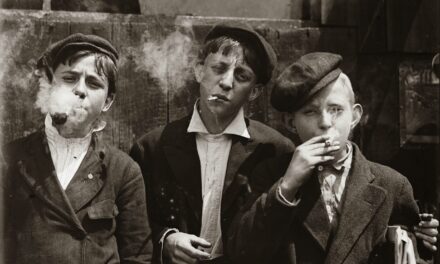Today, we have the pleasure of diving into the world of Tiffany Lauren Bennicke, the talented writer and producer behind the captivating film “But I Want to Leave the Party.” This thought-provoking film made its mark at the renowned Cannes World Film Festival, where it premiered and proudly clinched its first two awards. Now available for viewing on Apple TV and Google Play, this award-winning gem has amassed an impressive total of 33 awards and 26 nominations.
Delving deep into the complexities of mental health, Bennicke’s film sheds light on moments of despair and the journey towards healing, offering a poignant message of hope and resilience. Through authentic storytelling, she brings to life the challenges faced by those dealing with depression, sparking vital conversations and providing a platform for understanding and support.
With a focus on critical societal issues, personal growth narratives, and empowering female characters through art, Tiffany Lauren Bennicke’s work stands as a beacon of inspiration in the world of cinema. Join us as we sit down with Tiffany to uncover the passion and dedication that brought “But I Want to Leave the Party” to life.

Model:
Tiffany Lauren Bennicke
Instagram – @tiffanylaurenbennicke + @leavethepartyfilms
Website – www.leavethepartyfilms.com
Photography:
Alexis GR
Instagram – @alexisgr
Website – www.alexisgr.com
Hair + Makeup:
Natasha Pereira
Instagram – @natasha_pereira_hmua
Stylist
Kelly Ann Panagakos
Instagram – @kadogma
Website – www.kellyannpanagakos.com
Making films is often a struggle that begins years or even decades before a single scene is ever shot. How did the journey of creating “But I Want to Leave the Party” unfold?
As for the execution, from having the idea to make the film, to its completion, is uncharacteristically short. I wrote the film in two days, development took five days, and filming was three days. Post-production took the longest with editing and directing the music score, but from start to finish, from the idea till I had the finished film was less than five months. This is not “normal” for the industry, regardless of what you are making and its length. However, the real-time or “journey” happened before it started. I lived in Los Angeles for over a decade pursuing a career in TV and Film, before moving to Canada with my husband during the pandemic. It was one evening in February of 2022, that I decided I was just tired of waiting for someone else to hire me, so I had to take matters into my own hands and I hired myself. Up until that moment, I had only been an actress, but to make this film happen, I was also the writer, producer, and financier. It is objectively one of the hardest things I’ve done, but undoubtedly one of the best things I’ve done for myself.
In what ways does “But I Want to Leave the Party” contribute to the ongoing conversation around mental health, particularly in shedding light on the complexities of depression and offering a message of hope and resilience?
It’s not your typical “fun” film to watch, but the message is important and even if someone doesn’t connect with my film, I hope that at the very least it brings awareness and understanding. I hope that if someone is going through it, this film and me, are evidence that you can in fact get out of it.
Movies portraying mental health struggles are a challenge of their own. Do you feel as though there’s extra pressure to “get it right”?
Before hiring anyone on the project, I knew that it was going to be very important the way this story was portrayed. You have to be careful with how you tell these stories, and it was paramount to me that it was honest. As someone having gone through a very difficult time myself with declining mental health, I wanted this film to depict an experience as authentically as possible. If not done genuinely, you run the risk of offending people who have experienced severe depression or are going through it now.
This being the first film you’ve made, how did it feel going into a Cannes premiere?
Oh, that was nerve-racking. It’s funny, it’s easy to imagine so many of the things you want in life, and suddenly when you get over that hill and they present themself to you, you can never conceive what your reaction will be like to receive them.
You think you’d be exhilarated in that very moment… but I think that feeling came much later for me. Initially, when I started winning awards and was invited to Cannes, the shock in itself was mildly terrifying! LOL!
“But I Want to Leave the Party” has gotten a more-than-warm reception, with many nominations and awards across the board. Did you feel like you had something *this* special in your hands when you were working on it or have you felt surprised by its success?
I had no idea how it was going to be perceived or received. I only knew three things: I need to do this for myself and my career, this is an important story to tell, and I’m not going to allow myself to worry about people liking it or not.
Was I scared anyway, OH YES. I was doing something I’d never done before! It took all my will (and plenty of energy) to push myself through it. I know this all sounds like suffering, LOL! And I’m not going to lie, it was not easy. But if I had to, I’d do it all over again. It has been more than worth it.
What was the toughest part of the process of making this film for you?
Wow, that’s a fully loaded question…
Just the uncertainty of doing something you’ve never done for the first time with no instruction manual, no initial contacts, and no idea if all of this will work out, and whether what you’re doing would be for something or not. I learned so much. But also, making a film on a tight budget. I self-financed this film and had MANY jobs! Haha! Yes, I was the actress, writer, producer, and financier, but to make it happen on a budget, I was also craft service, wardrobe department, location scout and manager, script supervisor, janitor, etc.
You emerged from acting and into the role of writer and producer, was that always a goal of yours? Do you think you enjoy this side of filmmaking more than acting or is it just “different”?
Honestly no. I always felt I could be a producer, but it wasn’t my initial goal when I moved to LA. I’m very organized, and in many other areas of my life and running my house, I handle and manage it all. I knew I could be a producer, I just never imagined things would materialize the way they did. This first film was enough to make me want to start my production company.
Shortly after the completion of my film, I had my company incorporated, and nostalgically named it after my first film, hence, Leave the Party Films, Inc. was born.
I love it all to be honest, not one more than the other…but having the chance to see things in front of and behind the camera, has been enlightening, and definitely enriched both sides for me.
How does that transition look like? Were there moments where things you didn’t understand as an actor now suddenly made sense, renewing your perspective on the craft?
Absolutely! Your world opens up when you get to see how a machine is run from the bottom right up to the top. And to be honest, I think in this industry and others, it makes one a better leader, or just better at what you do, to see how things are from the other side. Something I’ve learned from spending time around other producers that I would not have learned as an actor… Being talented or possessing all the requirements, is a small part of getting the job done. Quite often, the people who make decisions as to who gets hired may choose the second-best qualified person, if they believe them to be easier to direct, work with, or get along best with the rest of the cast/crew.
How do you believe the portrayal of strong female characters in media influences society, and what are your future goals for empowering women in art and entertainment?
I think it’s important that younger generations see strong female characters in media. Even now in 2024, implicit bias still exists. You hear the words Pilot, Doctor, Lawyer, Politician, Engineer…And without realizing it, most people reading this probably pictured a man with every profession I just named. I am happy to see that there is a push towards stronger female representation as well as inclusivity and diversity in media, and I believe that will continue on that trajectory (and it’s about time!) It will take some time to see a change in thinking, and I’m keenly aware of this when deciding what stories I want to take on to produce and work on as an actress.
How do you see this conversation about the need for more empowering women’s narratives evolving in the future, both in media and society as a whole?
I see it evolving in a way that people will question successful women less. Media has the ability to change perception. It’s happening, albeit very slowly like anything else. As mentioned earlier, I look forward to the day when accomplished and powerful women aren’t belittled for their ability, or ever have to hear the question again, “Is that your real job?”
What strategies or actions do you believe are necessary to create a more inclusive and equal space for women in the field of art and entertainment?
Simple. Hire more women. And women…know how hard you worked for something and don’t undersell yourself. Because generally speaking…the men aren’t doing that.

